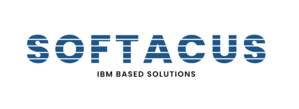Overview
Open Services for Lifecycle Collaboration (OSLC) is a set of specifications that simplifies the tool integration across the software delivery lifecycle. OSLC enables the creation of large-scale and easily maintainable integrations in a diverse tools environment. Tools that use OSLC specifications can more easily maintain tool integrations from different vendors.
Info: In scenarios we will be working with modules from one of the DOORS default templates - Automated Meter Reader, but the examples are not content-specific and you can use any modules to follow the scenarios analogously.
Specifications
Open Services for Lifecycle Collaboration (OSLC) allows the interoperability of shared resources defined as RDF among different domains using Linked Data.
The initiative is creating a group of web services specifications for products, services, and other tools that support all phases of the software and product lifecycle. The cause is to enable integration between products that support Application Lifecycle Management (ALM) and Product Lifecycle Management (PLM). Each part of the lifecycle or domain has its own specification, e.g. change management, requirement management, quality management, architecture management, automation, estimation, and measurement. Each of the domain specifications is built upon the core specification.
The OSLC specifications are defined by the OSLC community which is part of the OASIS Open Standards Network. OASIS is an international nonprofit consortium.
The Application Lifecycle Management (ALM) tool vendors want to have an open specification to exchange:
- Processes
- Requirements artifacts
- Development artifacts
- Testing artifacts
The standard is composed of a CORE specification and several domains:
- Design Management
- Change Management
- Quality Management
- Requirements Management
 - Introductions/01_oslc_akka.jpg)
1.) CORE specification and domains
Service providers
An OSLC Service Provider is “a product or online service offering that provides an implementation of one or more OSLC Services, which may themselves implement different OSLC Domain specifications” (from OSLC Core Specification V2).
IBM Rational Tools implement different OSLC domains, including:
- Requirements Management in IBM Rational DOORS and DOORS Next Generation
- Quality Management in IBM Rational Quality Manager
- Design Management in IBM Rhapsody
- Change Management in IBM Rational Change
This allows interoperability with external tools such as PROVEtech: TA
Architecture
 - Introductions/02_oslc_Architecture2.jpg)
2.) Architecture
OSLC Specifications
 - Introductions/03_oslc_specifications.jpg)
3.) OSLC Specifications
OSLC Library for Requirements Management
Link PROVEtech: TA Test Manager objects to IBM RQM Test Cases
 - Introductions/04_oslc linking.jpg)
Synchronize the automated test results in IBM RQM
 - Introductions/05_OSLC Synchronization.jpg)
About AKKA
AKKA is the leading European provider of engineering consulting and R&D services for the mobility industry. As an innovation accelerator, AKKA supports leading industrial companies from the automotive, aerospace, railway, and life sciences industries, among others, over the entire life cycle of their products using the latest digital technologies (AI, ADAS, Internet of Things, Big Data, Robotics, Embedded Computing, Machine Learning, etc.).
ABOUT PROVEtech
AKKA offers various soft- and hardware products collectively referred to as PROVEtech Tool Suite. The product portfolio is specially designed for measurement technology and validation purposes. It is mainly used in the automotive sector, consumer electronics, as well as other industrial applications. PROVEtech Toolsuite includes a variety of ready-to-use standard tools for vehicle testing and applications:
Control unit validation
- PROVEtech: TA – Test Automation
- PROVEtech: RE – Runtime Environment
- PROVEtech:μHiL – Hardware-In-The-Loop “compact”
Control unit data logging
- PROVEtech: VA – Vehicle Application
Further information can be found at https://www.provetech.de/
Softacus Services
We, in Softacus, are experts when it comes to consulting and service delivery of IBM software products and solutions in your business. We help our clients to improve visibility and transparency when licensing and managing commercial software, providing measurable value while increasing efficiency and accountability and we are providing services in different areas (see Softacus Services).
IBM ELM extensions developed by Softacus are free of charge for the customers who ordered IBM ELM licenses via Softacus or for the customers who ordered any of our services. If you are interested in any of our IBM ELM extensions, you found a bug or you have any enhancement request, please let us know at info@softacus.com.
Related and Referenced Topics
Blog Articles:
Basics of Links and Link Types in IBM DOORS Next Generation - learn the basics about the linking and link types in IBM DOORS Next.
Linking Techniques in IBM DOORS Next - article explaining basic concepts and showing multiple ways of creation of links between artifacts.
Link By Attribute Feature in IBM DOORS Next - the article explains how to use the "Link by attribute" function to automatically create, update, or delete one or more links between artifacts based on values in the attributes of the artifact.
Softacus Widgets:
Link Switcher - widget developed by Softacus, that converts the context of artifacts links in a very short time.
Module Link Statistics - extension that provides users with a quick overview of the amount of the links in specific link types in a module.
Link Type Change- extension developed by Softacus designed to enhance the functionality of DOORS Next Generation by allowing users to manipulate the direction of a link or convert it to another type of link.
Links Builder- extension that allows the users to create a link between two artifacts in DOORS Next Generation according to the certain rules.
Link by Foreign Attribute - this extension allows users to create links between artifacts in the selected module(s), based on the attributes values.
Show Attributes of Linked Artifacts - this extension shows the attributes and links of the artifact that is currently selected.









